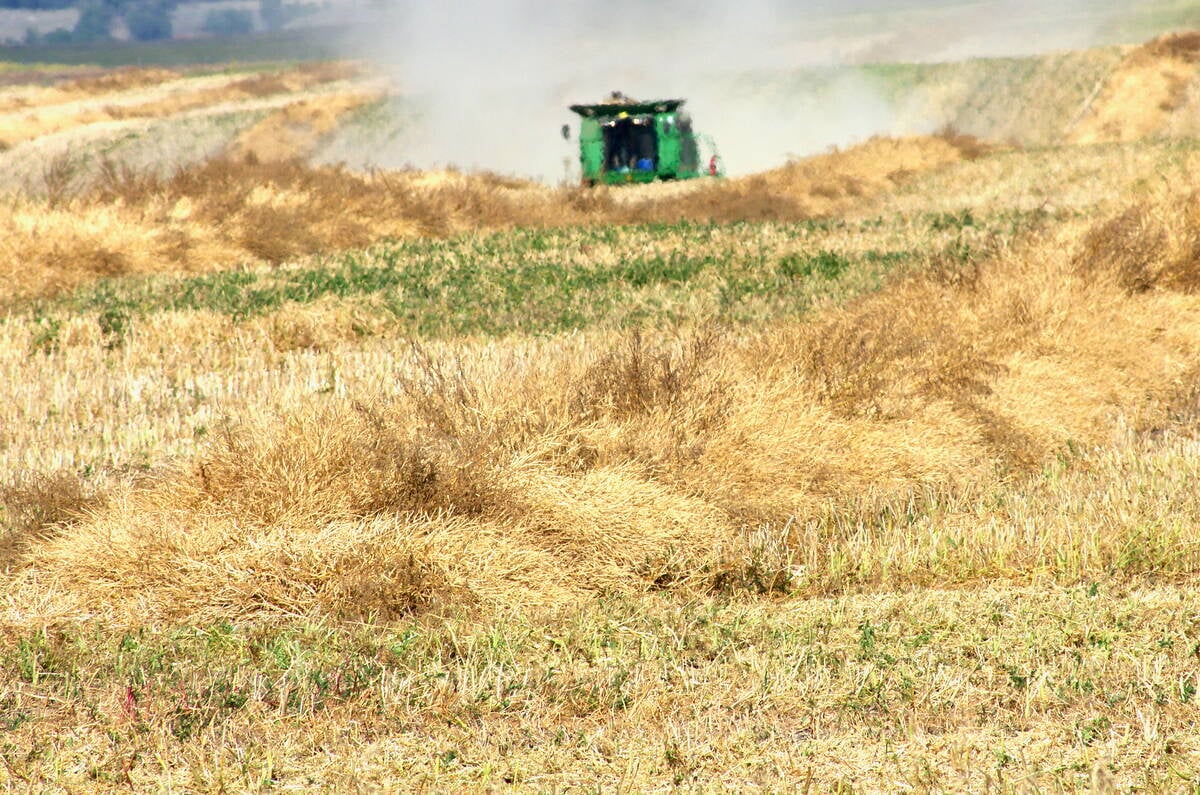Agriculture is getting at least some notice this federal election, farm leaders note on the heels of announcements by both the Liberals and Conservatives that laid out the agricultural planks in their election platforms.
Farm leaders were cautious in endorsing either of the major parties but they praised the fact that both parties had offered more on agricultural policy than during the 2004 election campaign.
“The good news is that both party leaders have engaged in agriculture policy statements and that is encouraging,” said Canadian Federation of Agriculture president Bob Friesen.
Read Also

Manitoba searches for Plan B on canola oil exports
A new report explores Manitoba’s current canola oil trade and possible alternative markets to the U.S.
Conservative leader Stephen Harper released an election agriculture platform that promises more money, redesigned long-term safety net programs, a separate disaster fund and support for supply management.
The party also promises to end the Canadian Wheat Board monopoly although it is far from clear that a minority Conservative government could get the required CWB legislative amendment through the House of Commons.
Harper said “every dime” of the pre-election Liberal announcement of $755 million, mainly to grains and oilseeds producers, would be sent to farmers by a Conservative government. The Conservatives would add $500 million a year to existing farm support funding.
(See Parties woo farmers, page 2)
He promised Conservative support for an expanded ethanol and biofuel industry.
“We do this (support agriculture) because as Conservatives, as those who want to conserve what is great about our country and our traditions, we know that there is nothing more important than the family farm,” Harper said on a farm near Chatham, Ont., Dec. 21. “The farm has always been a critical element in the formation of our nation and you can’t really talk about sovereignty as a nation if we don’t have a strong role in the production of our own food.”
Harper’s announcement followed by a day the announcement of the Liberal agriculture policy in the same area of southwestern Ontario where rural seats are up for grabs in the Jan. 23 election.
Prime minister Paul Martin said the Liberals recognize the existing farm support program is flawed and will redesign it in 2006, accept the conclusions of the Wayne Easter report that farmers need government help to attain more market power and will reintroduce previously announced policies including expansion of the advance payments program to livestock and stored crops.
He also said that if re-elected, Liberals would increase the capital gains holiday on once-in-a-lifetime farm sales to $750,000 from $500,000.
“You cannot appreciate the story of Canada without the appreciation of our farmers,” Martin said on a farm near Chatham. “For generations, they have built this country, changing with the times but steady in their commitment, in their way of life. The steps we can take today together will ensure that agriculture in Canada will be a driver of our economy in the future so that Canadians can eat what Canadians grow and Canadians can sell what Canadians can grow for many years to come.”
Friesen said the Conservative commitment to additional farm support and a redesigned program is positive, although the CFA disagrees with the Conservative promise to end the CWB monopoly.
“They should not impose this on farmers and if they do, you wonder what their support of supply management really means and how deep it is,” said Friesen.
He said the Martin promise to embrace the Easter report’s premise of “empowering farmers” was positive.
Meanwhile, other parties mocked the Liberal pledges as recycled proposals that have not worked in the past.
“There really is nothing new there,” said Conservative agriculture critic Diane Finley. “We are proposing to create a new program that is more responsive, more fair and gets money to farmers when it is needed.”
The New Democrats, while yet to announce their own agriculture policy, noted that in November, Liberals refused to support a private MP’s proposal that the capital gains tax exemption be increased for farmers.
“Liberals now propose what they denied farmers 25 days ago,” the NDP said in its response to the Liberal platform.
Harper said his party would replace the existing Canadian Agricultural Income Stabilization program with one that takes account of production costs, market revenues and realistic inventory evaluation.
In response to a question when he announced the program, Harper suggested that rather than support the corn countervail and anti-dumping tariff recently won by Canadians against American corn imports, he would prefer a support system that gives Canadian farmers the same benefits American corn farmers receive.














